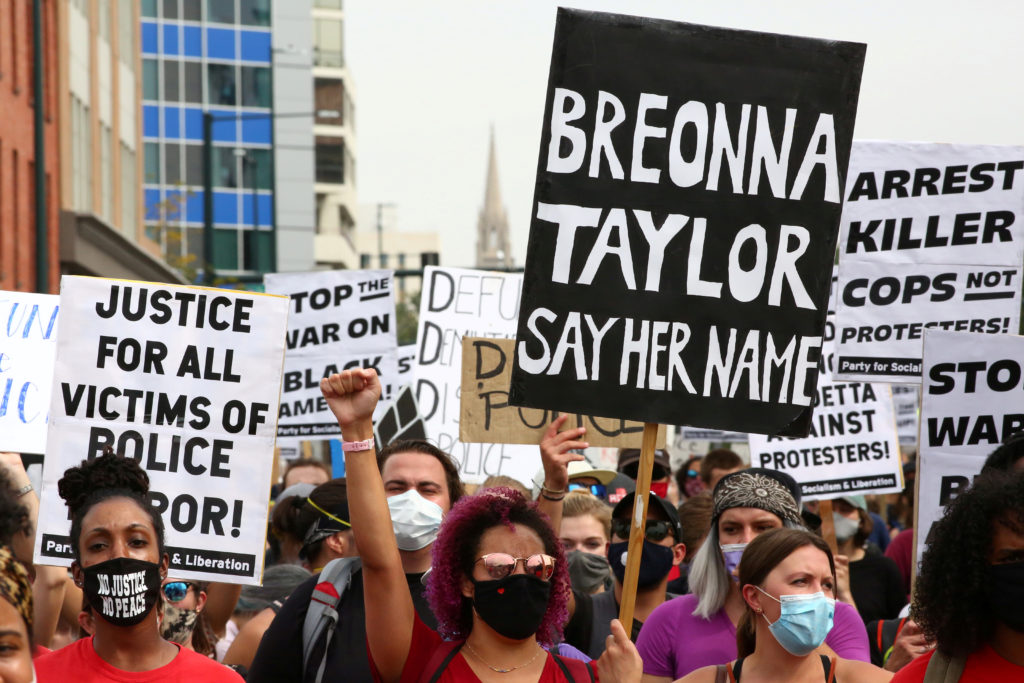LEXINGTON, Ky. (AP) — Kentucky’s second-largest city has joined Breonna Taylor’s hometown in banning the use of “no-knock” warrants.
The Lexington council voted 10-5 to ban no-knock warrants after more than three hours of debate Thursday night, news outlets reported.
Lexington Mayor Linda Gorton signed the ordinance into law on Friday, making it effective immediately, the Lexington Herald-Leader reported.
Last year, the Metro Council in Louisville, Kentucky, voted to ban the controversial warrants, which permit officers to enter a home or residence without knocking. Taylor — a
Louisville emergency medical technician studying to become a nurse — was fatally shot by police as officers burst into her home while conducting a narcotics investigation. No drugs were found at her home.
In Lexington, the new ordinance also sets out requirements for how knock-and-announce warrants are executed.
The Rev. Clark Williams, one of several Black faith leaders who pushed for more than a year for Lexington to ban no-knock warrants, said after the council vote: “I’m relieved that first of all, we got to vote on what we’ve been talking about all year. It’s very sobering it was this hard to get a vote. We’re happy with the outcomes, but it shows us we have a lot more work to do.”
The final vote on the ban came after a substitute amendment — which would have added more restrictions on how no-knock warrants can be used — was narrowly defeated.
Gorton previously voiced opposition to totally banning no-knock warrants in Lexington. But she signed the ordinance into law after hearing from residents who supported the proposal during the council’s public comment section Thursday, the Lexington newspaper reported.
“It was democracy in action, and sometimes it’s messy,” she said. “That’s just how it goes … Sometimes it got divisive. And it’s OK for people to disagree, but then we need to move on.”
Kentucky lawmakers this year passed a partial ban on no-knock warrants. The measure, signed by Gov. Andy Beshear, only permits no-knock warrants if there is “clear and convincing evidence” that the crime being investigated “would qualify a person, if convicted, as a violent offender.”













































